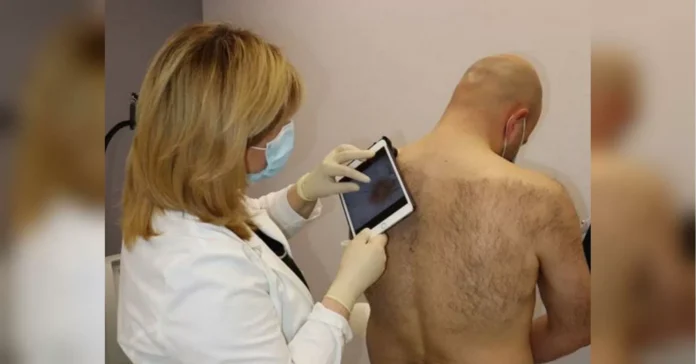Melanoma is a type of skin cancer that can develop on various parts of the body, including the mucous membranes, under the nails, and even on the iris of the eye. It is a serious and potentially life-threatening disease that can spread to other organs through the lymphatic and blood systems.
Melanoma is a type of cancer that begins in the cells that produce melanin, the pigment that gives color to our skin, hair, and eyes. When these cells, called melanocytes, become damaged or grow abnormally, they can form a tumor. If the tumor is left untreated, it can grow and spread to other parts of the body, making it more difficult to treat.
One of the most alarming aspects of melanoma is its ability to develop on mucous membranes, which are the moist tissues that line various parts of the body such as the mouth, nose, and genitals. This type of melanoma is known as mucosal melanoma and is less common than skin melanoma, but it is often more aggressive and difficult to detect. Mucosal melanoma can develop on the mucous membranes of the respiratory, digestive, and urinary systems, as well as the eyes.
Another surprising location where melanoma can develop is under the nails. This type of melanoma is called subungual melanoma and is more common in people with darker skin tones. It usually appears as a dark streak or spot under the nail and can be mistaken for a bruise or injury. If left untreated, it can spread to the surrounding tissues and bones.
Melanoma can also develop on the iris of the eye, which is the colored part of the eye. This type of melanoma is known as ocular melanoma and is the most common type of eye cancer in adults. It can cause changes in vision, such as blurred vision or dark spots in the field of vision. If not treated early, it can spread to other parts of the eye and even to other organs.
The most concerning aspect of melanoma is its ability to spread to other parts of the body through the lymphatic and blood systems. The lymphatic system is a network of vessels and nodes that help fight infection and disease. When melanoma cells enter the lymphatic system, they can travel to nearby lymph nodes and form new tumors. If the cancer cells enter the bloodstream, they can spread to distant organs such as the lungs, liver, or brain.
Once melanoma has spread to other organs, it becomes much more difficult to treat and can be life-threatening. That is why early detection and treatment are crucial in improving the chances of survival. It is important to regularly check your skin for any changes in moles or new growths and to see a doctor if you notice any concerning symptoms.
Some risk factors for melanoma include excessive sun exposure, a history of sunburns, a family history of melanoma, and having fair skin, hair, and eyes. However, anyone can develop melanoma, regardless of their skin tone or family history. That is why it is important for everyone to protect their skin from the sun’s harmful UV rays and to regularly check for any changes in their skin.
In conclusion, melanoma is a type of skin cancer that can develop on various parts of the body, including the mucous membranes, under the nails, and on the iris of the eye. It is a serious and potentially life-threatening disease that can spread to other organs through the lymphatic and blood systems. Early detection and treatment are crucial in improving the chances of survival. Remember to protect your skin from the sun and to regularly check for any changes in your skin. Stay safe and healthy!

